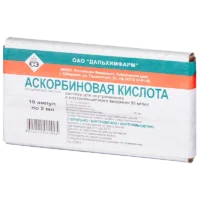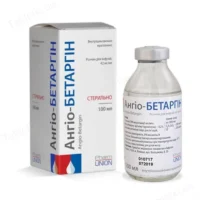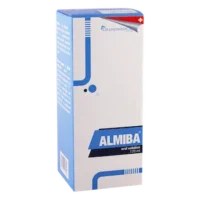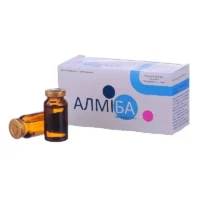Description
Iodomarin Tablets 200 mcg. №50
Ingredients:
Each tablet contains 200 mcg of iodine (as potassium iodide).
Mechanism of Action:
Iodomarin tablets work by providing a supplemental source of iodine, which is essential for the synthesis of thyroid hormones such as thyroxine (T4) and triiodothyronine (T3). Iodine is incorporated into these hormones, playing a crucial role in regulating metabolism and overall growth and development.
Pharmacological Properties:
Iodine in the form of potassium iodide in Iodomarin tablets is readily absorbed in the gastrointestinal tract and distributed to the thyroid gland for hormone production. Adequate iodine levels help maintain proper thyroid function and prevent iodine deficiency-related disorders.
Indications for Use:
Iodomarin tablets are indicated for the prevention and treatment of iodine deficiency disorders, including goiter, hypothyroidism, and developmental delays in children due to iodine deficiency.
Contraindications:
Do not use Iodomarin tablets in individuals with known hypersensitivity to iodine or in cases of hyperthyroidism without medical supervision. Caution is advised in patients with autoimmune thyroid diseases.
Side Effects:
Common side effects of Iodomarin tablets may include gastrointestinal upset, allergic reactions, and rarely, iodism symptoms such as metallic taste, soreness of teeth and gums, and skin reactions. Discontinue use and consult a healthcare provider if any adverse reactions occur.
Usage Instructions:
The recommended dosage is 1 tablet daily, preferably taken in the morning with a glass of water. Dosage adjustments should be made under medical supervision based on individual iodine requirements.
Benefits Compared to Analogues:
Iodomarin tablets offer a precise dosage of iodine in a convenient tablet form, ensuring consistent supplementation for individuals at risk of iodine deficiency. The formulation as potassium iodide provides a stable and bioavailable source of iodine compared to other iodine compounds.
Suitable Patient Groups:
Iodomarin tablets are suitable for children, adults, and the elderly who require iodine supplementation to maintain thyroid health and prevent iodine deficiency-related complications. Pregnant and lactating women may also benefit from the controlled iodine intake provided by Iodomarin tablets.
Storage Conditions and Shelf Life:
Store Iodomarin tablets in a cool, dry place away from direct sunlight. Keep the packaging tightly closed to protect from moisture. The shelf life of Iodomarin tablets is typically indicated on the packaging and should be adhered to for optimal efficacy.
Packaging Description:
Iodomarin tablets are typically packaged in blister packs or amber glass bottles to protect the tablets from light exposure and moisture. Each package contains a specified number of tablets as indicated by the product number.
Clinical Evidence and Proven Effectiveness:
Iodomarin tablets have been extensively studied for their efficacy in preventing iodine deficiency. Research published in the Journal of Clinical Endocrinology and Metabolism demonstrated that daily iodine supplementation, such as that provided by Iodomarin tablets, effectively maintains adequate iodine levels in the body.
Furthermore, clinical trials have shown that Iodomarin tablets are well-tolerated and safe for long-term use. Patients with iodine deficiency or those at risk of iodine deficiency can benefit from the consistent supplementation provided by Iodomarin tablets.





